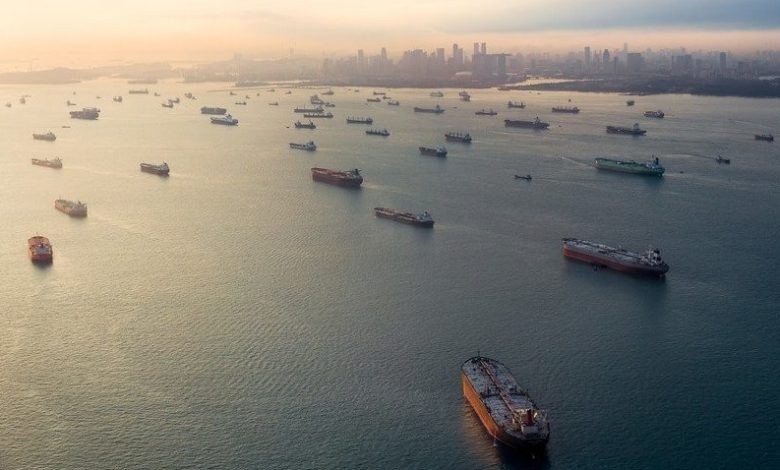Challenges for Singapore in shipping’s season of anomy

Edward Ion, managing partner of Singapore-based Helix Media, suggests the government needs to be more laissez-faire.
The hoary old question ‘Has Singapore achieved international maritime hub status?’ has surely been answered long ago, probably back in the early part of this century.
By any measure of such intangibles the city state has been on a roll for the past two decades and today sits comfortably with the traditional centres such as London and Oslo.
The mix of government and private sector partnership has produced a market which possesses all the attributes of a major international shipping hub.
If international maritime centre (IMC) status is measured by the range and depth of service companies doing business Singapore, then it may even rank as number one – in fact one survey placed it there earlier this year.
But this question has become tiresome and backward looking.
Singapore has reached a half century as an independent nation – but what about the next 50 years?
Rather like the celebrations to mark the republic’s 50 years of independence back in 2015 which seemed to go on forever, the question of whether Singapore has achieved IMC status should be put to bed now.
There is no doubt the country’s maritime hub is a shining example of what can be achieved when vision is combined with consensus and hard work.
Singapore’s founding fathers decreed shipping was central to the nation’s survival and so it has transpired.
A mixture of generous fiscal incentives, geographical location, a well-educated workforce and a solid legal system make Singapore a very attractive place for the global maritime community.
But that maritime community is notoriously fickle and has a unique ability to move its capital and assets to any location in which it believes it can make the best return.
In shipping’s current season of anomy, Singapore faces strong headwinds.
Most notably the near two year rout of oil prices has wreaked an awful havoc on the once booming offshore oil and gas sector.
To set this in context, the offshore oil and gas sector includes more than 25 publicly listed companies and forms a very significant part of the total marine market in Singapore.
Singapore’s response to this has been to raise the issue of government assistance for failing offshore companies.
But this has raised eyebrows in the international maritime community and among analysts.
It has raised the question: “Is Singapore’s oil and gas sector in the ‘Too Big To Fail’ category?”
Or is the idea of government ‘measures’ (aka public subsidies) just a vain attempt to stave off the day when fundamental restructuring of that sector will have to take place?
The idea of government support for failing private offshore companies is surely outdated and not in keeping with the wider goal of finding the right strategy to ensure Singapore survives and thrives as a maritime centre in the next 50 years.
The global oil and gas sector, at its most dynamic, is perhaps the greatest example of private enterprise and entrepreneurship.
Companies stand or fall on free market principles. The best companies are private, free from the dead hand of the state.
Indeed, wherever there is significant state involvement in oil and gas companies, there is usually incompetence – and worse.
Singapore should let the free market take its course in its oil and gas sector. It means the weaker, badly run companies will go. The best companies will thrive.
This principle has a wider lesson for Singapore’s wider long term IMC status.
Subsidies and government fiscal support will only distort the market in the long run and are counter-productive.
Government support is most needed in the training and education of a workforce which is still reluctant to seek careers in the maritime sector.
And it can also play a role in ensuring that Singapore can continue to attract the brightest and best people from around the world to come and work in the maritime sector with flexible and open employment practises for foreign workers.
This article forms the Opinion page in our fourth annual Singapore Market Report – a 28-page magazine that launched yesterday. Readers of Splash can access the full magazine for free online by clicking here.
